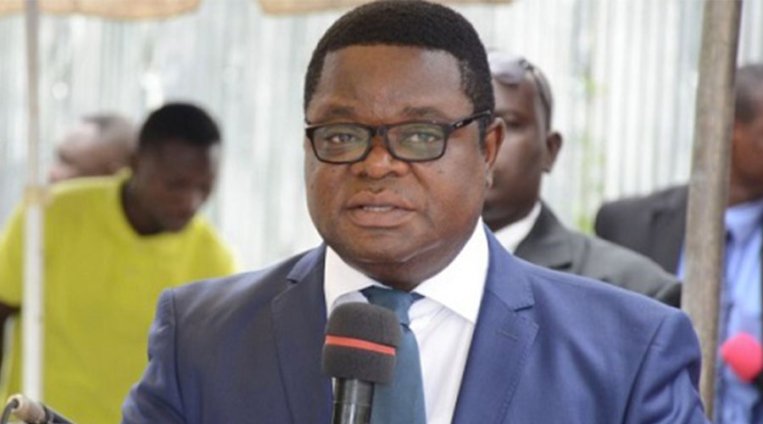The Director of the Institute of Statistical, Social and Economic Research (ISSER) at the University of Ghana has called on the government to assiduously work to meet the IMF bailout conditions after the approval of Ghana’s $3 billion request.
Speaking on Top Story on Joy FM, Prof Peter Quartey explained that the bailout is not just about receiving funds from the IMF to temporarily restore some stability in the economy but also taking advantage of the programme’s details to raise revenue among others and limit reliance on external sources of funding.
“There are other areas as well that the program is going to support to ensure that we reset the economy. Revenue is one major area and our expenditure, getting value for money in terms of spending and ensuring growth, and stability in all its aspect. I think the programme is quite comprehensive.”
Prof Quartey added that “the real challenge starts when we receive the money. We need to ensure that whatever is stated in the programme we work assiduously to achieve them. Otherwise, come the next review if we are not able to meet them, the release of the tranche might not come.”
He noted that this will affect many aspects of the economy going forward.
On Wednesday, the International Monetary Fund (IMF) finally approved Ghana’s request seeking a $3 billion Balance of Payment support to stabilize the economy.
The Governor of the Bank of Ghana (BoG) Ernest Kwamina Yedu Addison, on Thursday, revealed that the first tranche of $600 million from the $3 Billion credit facility, will hit the bank’s account on Friday, May 19, 2023.
The second tranche of disbursement would be expected by December 2023. This is however subject to meeting some conditions under the programme.
The remaining amount will be disbursed in tranches of $360 million every six months, subject to meeting the IMF programme conditions.
Ghana is expecting about $3 billion spread over three years under the IMF Programme.
Meanwhile, Prof Quartey stated that going through the IMF programme will have some advantages but also some disadvantages as well.
“As we are witnessing now, the exchange rate is appreciating. If it's stable, then you will not see an automatic adjustment. So it is something that will bring some hardships in some areas but benefits as well,” he said.
Prof Quartey added that taxes need to be increased in some areas to help with local revenue mobilisation as the IMF has suggested. This he said would affect many Ghanaians and businesses going forward.
“We are basically doing well when it comes to income tax except that it is only a few people who are overburdened. Where the challenge is, is VAT. If you look at our VAT receipts compared to what is within the sub-region, we are way off the target. That is one area that may be increased and with the effect of increasing VAT, it might bring challenges” he noted.
Latest Stories
-
Pakistan to nominate Trump for Nobel Peace Prize
23 minutes -
Suicide bombing at Damascus church kills 22, Syrian authorities say
35 minutes -
Bellingham scores as 10-man Real Madrid beat Pachuca
52 minutes -
Three fans die in Algeria football stadium fall
1 hour -
South African engineers freed after two years in Equatorial Guinea jail
1 hour -
FedEx founder and former boss Fred Smith dies aged 80
1 hour -
Bride shot dead in attack on French wedding party
2 hours -
Legon Cities handed transfer ban over unpaid GHC 29,000 compensation to Francis Addo
2 hours -
Africa World Airlines to reduce air fares by end of June 2025
4 hours -
Nationwide crackdown: Ghana’s Anti-Galamsey Task Force intensifies operations
4 hours -
TOR debt rose to a record $517m as of December 2024
4 hours -
‘Good Girl No Dey Pay’ but it cost me plenty – Maya Blu gets candid
5 hours -
GFA imposes transfer ban on Hearts of Oak over unpaid $70,000 debt to New Edubiase
5 hours -
TOR to resume full operations in October 2025 – Acting MD
5 hours -
Celestine Donkor headlines Exceptional Gratitude concert in Italy
5 hours

